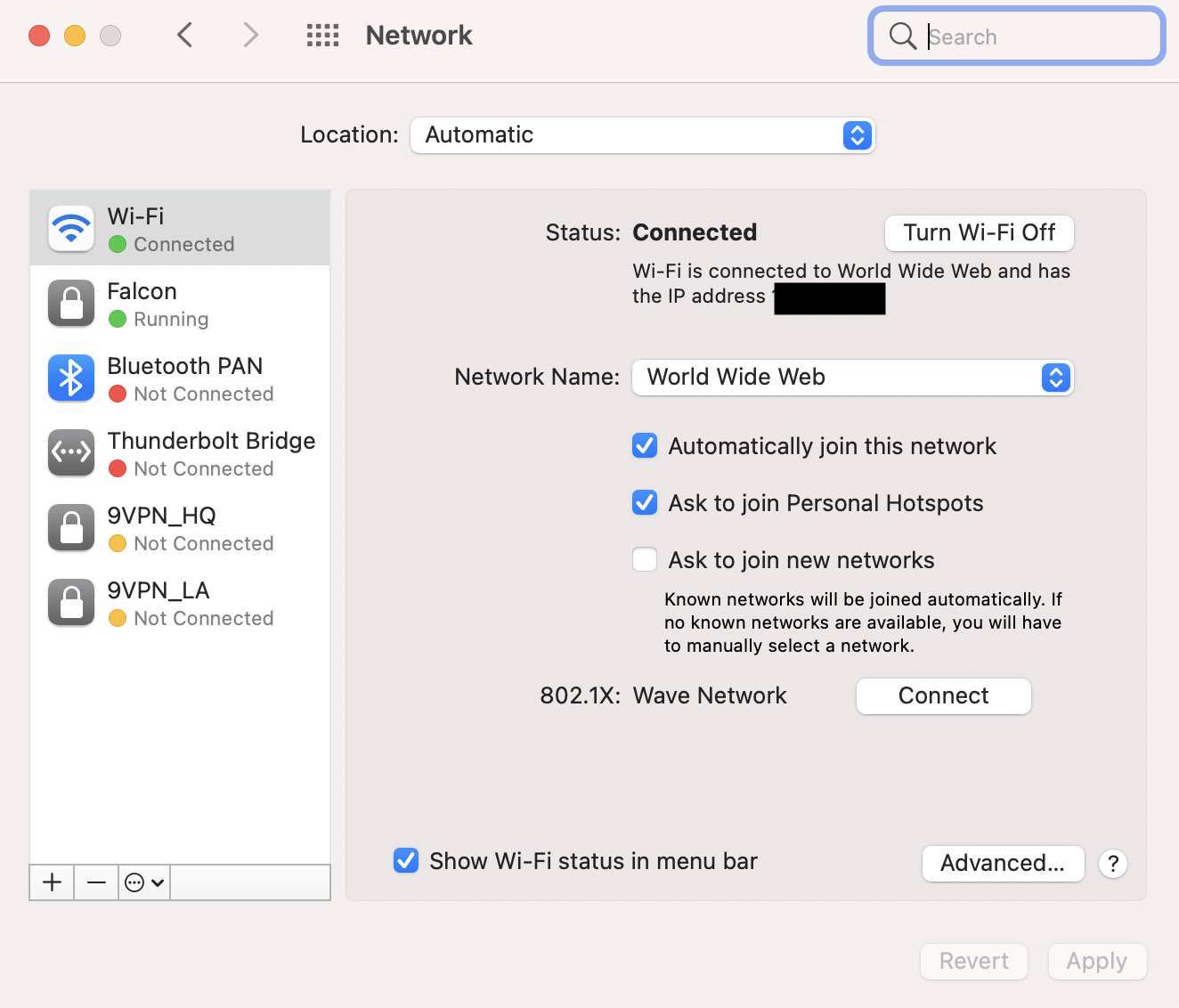Introduction
Voice over IP (VoIP) has revolutionized the way we communicate. Gone are the days of relying solely on traditional landline phones for making calls. With VoIP, voice calls are transmitted over the internet, enabling users to make and receive calls from any location with an internet connection. This technology has not only made communication more convenient but also more cost-effective.
In today’s rapidly evolving digital landscape, businesses and individuals alike are opting for VoIP as their preferred communication solution. This powerful technology has transformed the way we connect with others, offering numerous benefits and features that traditional telephone systems cannot match. Whether you are a small business owner looking for a cost-effective communication solution or an individual seeking a reliable and flexible calling option, VoIP has a lot to offer.
In this article, we will explore the world of VoIP and shed light on its key features, functionalities, and the various benefits it provides to businesses and individuals. We will also discuss the different types of VoIP services available and provide some guidance on selecting the right VoIP provider. By the end of this article, you will have a solid understanding of VoIP and its potential to enhance your communication experiences.
What is Voice over IP?
Voice over IP (VoIP) is a technology that enables the transmission of voice and multimedia content over the internet. Unlike traditional analog phone systems that utilize physical phone lines, VoIP converts voice signals into digital packets and sends them across IP networks. This allows users to make and receive calls using internet-connected devices such as computers, smartphones, or specialized VoIP phones.
With VoIP, voice data is converted into digital format using codecs (encoding and decoding algorithms) and transmitted in real-time over a packet-switched network infrastructure, such as the internet. This digital conversion and packetization process allows for efficient transmission and improved call quality, as well as the integration of additional multimedia features like video conferencing, instant messaging, and file sharing.
One of the key benefits of VoIP is its flexibility and scalability. Because calls are transmitted over the internet, users can make and receive calls from anywhere with an internet connection. This eliminates the need for a physical phone line and allows for seamless communication across different devices and locations. Additionally, VoIP systems can easily accommodate growing business needs by adding or removing users without requiring significant infrastructure changes.
Another advantage of VoIP is its cost-effectiveness. Traditional phone systems often involve high setup and maintenance costs, as well as expensive long-distance call charges. VoIP, on the other hand, typically offers lower call rates, especially for international or long-distance calls. Additionally, by leveraging the existing internet connection, businesses can reduce or eliminate the need for separate voice and data networks, further reducing costs.
In summary, Voice over IP (VoIP) is a technology that allows for the transmission of voice and multimedia content over the internet. It offers flexibility, scalability, improved call quality, and cost savings compared to traditional phone systems. In the next section, we will take a closer look at how VoIP works.
How does Voice over IP work?
Voice over IP (VoIP) works by converting analog voice signals into digital packets and transmitting them over IP networks. This process involves several key steps:
1. Voice Conversion: When you make a call using VoIP, your voice is converted from analog to digital format using a codec (encoding and decoding algorithm). This conversion process breaks down your voice into small data packets.
2. Packetization: The digital voice packets are then encapsulated in IP packets, which include the necessary information for routing the packets over the internet. These IP packets contain the source and destination IP addresses, as well as synchronization and error correction data.
3. Transmission: Once the voice packets are ready, they are transmitted over IP networks, including local area networks (LANs) or the wider internet infrastructure. The packets are directed towards the destination IP address using routing protocols, ensuring efficient and reliable delivery of the voice data.
4. Reassembly: At the receiving end, the voice packets are reassembled in the correct order to reconstruct the original voice signal. The digital voice data is then converted back into analog format using a codec, resulting in clear and audible voice communication.
5. Quality of Service (QoS): To ensure optimal call quality, VoIP systems often employ Quality of Service mechanisms. QoS prioritizes voice traffic over other types of data, reducing latency, jitter, and packet loss. This allows for smooth and uninterrupted voice communication, even in congested network conditions.
It is important to note that for VoIP to work effectively, a reliable internet connection with sufficient bandwidth is required. The quality of the internet service provider and network infrastructure can have a significant impact on call quality and overall VoIP performance.
Additionally, VoIP systems may require the use of specialized hardware, such as IP phones or adapters, to facilitate the conversion between analog and digital signals. However, with advancements in technology, many VoIP services can now be accessed through software-based clients on computers and mobile devices.
In the next section, we will explore the benefits of using Voice over IP for both businesses and individuals.
Benefits of Voice over IP
Voice over IP (VoIP) offers numerous advantages for both businesses and individuals. Let’s explore some of the key benefits:
1. Cost Savings: One of the primary advantages of VoIP is its cost-effectiveness. Traditional phone systems often come with high setup, equipment, and maintenance costs. VoIP eliminates the need for separate voice and data networks, reducing infrastructure expenses. Additionally, VoIP calls, especially long-distance or international calls, are typically more affordable compared to traditional phone services.
2. Flexibility and Mobility: VoIP allows users to make and receive calls from anywhere with an internet connection. Whether you’re at the office, at home, or on the go, you can use your VoIP service on various devices, such as computers, smartphones, or specialized VoIP phones. This flexibility and mobility enable remote work, collaboration, and seamless communication regardless of location.
3. Advanced Features: VoIP offers a wide range of advanced features that enhance communication experiences. These include call forwarding, voicemail-to-email transcription, call recording, auto-attendant, virtual extensions, and more. Businesses can also leverage features like conference calling and video conferencing to facilitate collaboration and improve productivity.
4. Scalability: VoIP systems can easily scale up or down to meet the changing needs of businesses. Adding or removing users is a straightforward process without requiring extensive infrastructure changes. This scalability makes VoIP a cost-effective option for small businesses and enterprises alike.
5. Integration and Collaboration: VoIP can seamlessly integrate with other business applications, such as customer relationship management (CRM) systems, email clients, and collaboration tools. This integration enhances productivity by streamlining workflow and enabling efficient communication and data sharing across different platforms.
6. Enhanced Call Quality: With advancements in technology and network infrastructure, VoIP call quality has improved significantly. Many VoIP providers employ Quality of Service (QoS) mechanisms to prioritize voice traffic and minimize latency, jitter, and packet loss. The result is clear, high-quality voice communication, even in international or long-distance calls.
7. Efficient Management and Maintenance: VoIP systems are typically managed through user-friendly web-based interfaces, allowing for easy administration, configuration, and monitoring. Additionally, software updates and maintenance are often handled by the VoIP provider, reducing the burden on businesses and individuals.
In summary, Voice over IP (VoIP) offers cost savings, flexibility, advanced features, scalability, integration capabilities, enhanced call quality, and efficient management. These benefits make VoIP an attractive communication solution for businesses of all sizes and individuals seeking a more convenient and cost-effective calling option.
Different types of Voice over IP
Voice over IP (VoIP) encompasses various types of services and technologies. Let’s explore some of the different types of VoIP:
1. Residential VoIP: Residential VoIP services are designed for individual users or households. These services provide cost-effective calling options for personal use. Residential VoIP providers typically offer features like unlimited local and long-distance calling, voicemail, call forwarding, and caller ID.
2. Business VoIP: Business VoIP services cater to the communication needs of businesses, ranging from small startups to large enterprises. These services often include advanced features like auto-attendant, call routing, conferencing, and integration with business applications. Business VoIP solutions are scalable and can accommodate multiple employees and locations.
3. Hosted VoIP: Hosted VoIP, also known as cloud-based VoIP, involves outsourcing the infrastructure and management of the VoIP system to a third-party provider. With hosted VoIP, businesses and individuals can access VoIP services over the internet without the need to invest in expensive hardware or perform system maintenance. This type of VoIP service is highly scalable and flexible.
4. SIP Trunking: Session Initiation Protocol (SIP) trunking is a technology that enables businesses to connect their Private Branch Exchange (PBX) system to the internet using VoIP. SIP trunking allows for the consolidation of voice and data networks, resulting in cost savings and streamlined communication. It eliminates the need for physical phone lines and enables businesses to make and receive calls over an IP connection.
5. Mobile VoIP: Mobile VoIP refers to the use of VoIP services on mobile devices, such as smartphones and tablets. This allows users to make calls over Wi-Fi or mobile data networks, enabling cost-effective and convenient communication. Mobile VoIP apps often offer additional features like instant messaging, video calling, and file sharing.
6. Integrated VoIP: Integrated VoIP solutions combine voice communication with other communication channels, such as instant messaging, video conferencing, and collaboration tools. These solutions offer a unified communication experience, allowing users to seamlessly switch between different modes of communication and improving productivity and workflow.
It is important to note that different VoIP providers may offer variations and combinations of these types of services. It is essential to assess your specific communication needs and choose a VoIP solution that aligns with your requirements and budget.
Now that we have explored the different types of VoIP services, let’s delve into the factors to consider when choosing a VoIP provider in the next section.
Choosing a Voice over IP Provider
Choosing the right Voice over IP (VoIP) provider is crucial to ensure a reliable and high-quality communication experience. Here are some factors to consider when selecting a VoIP provider:
1. Features and Functionality: Evaluate the features and functionalities offered by the VoIP provider. Consider whether they align with your specific communication needs. Some common features to look for include call forwarding, voicemail, auto-attendant, conference calling, and integration with business applications.
2. Call Quality and Reliability: Reliable call quality is essential for effective communication. Research the VoIP provider’s network infrastructure and their measures to ensure call quality, such as Quality of Service (QoS) mechanisms. Look for providers with a track record of delivering consistent and crystal-clear voice calls.
3. Scalability and Flexibility: Consider the scalability and flexibility of the VoIP provider’s services. Can they accommodate your growing business needs? Are they capable of connecting multiple locations and users seamlessly? Choose a provider that can grow with your business without compromising quality.
4. Pricing and Cost: Compare the pricing plans and packages offered by different VoIP providers. Take into account the call rates, included features, and any additional fees or charges. Ensure that the provider offers transparent pricing and aligns with your budgetary constraints.
5. Customer Support: Check the customer support options provided by the VoIP provider. Look for a provider that offers responsive and accessible support channels, such as phone, email, or live chat. Prompt and reliable customer support is crucial in case of any technical issues or service interruptions.
6. Security and Privacy: Ensure that the VoIP provider has robust security measures in place to protect your communication data. Look for providers that offer encryption protocols and safeguards against unauthorized access or eavesdropping. Verify their privacy policies to ensure your sensitive information is protected.
7. Reputation and Reviews: Research the reputation of the VoIP provider by reading customer reviews and testimonials. Look for a provider with positive reviews regarding call quality, customer support, and overall satisfaction. Consider reaching out to other businesses or individuals who have used the provider’s services for firsthand feedback.
8. Integration and Compatibility: If you rely on specific business applications or tools, ensure that the VoIP provider integrates seamlessly with them. Compatibility with your existing equipment, such as IP phones or conference room systems, is also essential to avoid additional costs or compatibility issues.
Take the time to evaluate and compare different VoIP providers based on these factors. A reliable and suitable VoIP provider can greatly enhance your communication capabilities and contribute to your business’s success.
In the next section, we will address some common misconceptions about Voice over IP.
Common misconceptions about Voice over IP
Voice over IP (VoIP) has become a widely adopted communication solution, but there are still some misconceptions surrounding its use. Let’s address some common misconceptions about VoIP:
1. Poor Call Quality: One misconception is that VoIP calls always have poor call quality. In reality, with advancements in technology and network infrastructure, VoIP call quality has significantly improved. Factors such as a stable internet connection and a reliable VoIP provider can ensure clear and consistent call quality.
2. Complicated Setup: Some believe that setting up a VoIP system is complex and time-consuming. However, many VoIP providers offer straightforward setup processes, often involving the use of user-friendly web interfaces for configuration. In many cases, a VoIP provider can guide and assist with the setup, making it hassle-free.
3. Limited Reliability: Another misconception is that VoIP services are less reliable than traditional phone systems. While occasional network disruptions or outages can occur, reputable VoIP providers implement measures to ensure reliability, such as redundant network infrastructure and failover systems. Choosing a reliable provider and having a backup internet connection can further enhance reliability.
4. VoIP is Expensive: Some assume that VoIP services are costly due to the advanced features and capabilities they offer. However, VoIP can actually lead to cost savings in terms of hardware, maintenance, and long-distance calling charges. Additionally, VoIP providers often offer flexible pricing plans that cater to different budgets.
5. Lack of Security: There is a misconception that VoIP calls are inherently insecure and susceptible to eavesdropping or hacking. However, reputable VoIP providers implement encryption protocols and employ security measures to protect voice and data transmissions. It is important to choose a trusted provider and ensure your network and devices are secure.
6. Limited Functionality: Some may think that VoIP is limited in terms of features compared to traditional phone systems. In reality, VoIP offers a wide range of advanced features and functionalities, such as call forwarding, conference calling, voicemail-to-email transcription, and integration with business applications. These features can enhance productivity and collaboration.
7. VoIP Only for Businesses: It is not uncommon to think that VoIP is only suitable for businesses. However, VoIP also benefits individual users by providing cost-effective calling options, mobility, and advanced features. Many residential VoIP services are available to meet personal communication needs.
By addressing these common misconceptions, it becomes clear that VoIP is a reliable, cost-effective, and feature-rich communication solution accessible to both businesses and individuals. Understanding the truth about VoIP can help individuals and organizations make more informed decisions when implementing or considering VoIP as their preferred communication method.
In the concluding section, we will summarize the key points discussed in this article.
Conclusion
Voice over IP (VoIP) has transformed the way we communicate, offering numerous benefits and advantages over traditional phone systems. It enables users to make and receive calls over the internet, providing flexibility, cost savings, and advanced features.
In this article, we have explored the concept of VoIP and how it works. We have discussed the benefits of VoIP, including cost savings, flexibility and mobility, advanced features, scalability, integration capabilities, enhanced call quality, and efficient management.
We have also covered different types of VoIP services, such as residential VoIP, business VoIP, hosted VoIP, SIP trunking, mobile VoIP, and integrated VoIP. Each type caters to specific communication needs, allowing users to choose a solution that aligns with their requirements.
Additionally, we have highlighted the importance of choosing the right VoIP provider. Factors such as features and functionality, call quality and reliability, scalability and flexibility, pricing and cost, customer support, security and privacy, reputation and reviews, and integration and compatibility should be considered when making a decision.
Furthermore, we have addressed common misconceptions about VoIP, including poor call quality, complicated setup, limited reliability, high cost, lack of security, limited functionality, and the idea that VoIP is only for businesses.
In conclusion, Voice over IP (VoIP) has revolutionized communication, providing individuals and businesses with cost-effective, flexible, and feature-rich calling options. By understanding the capabilities and benefits of VoIP, as well as dispelling common misconceptions, users can make informed decisions and harness the power of VoIP for their communication needs.

























